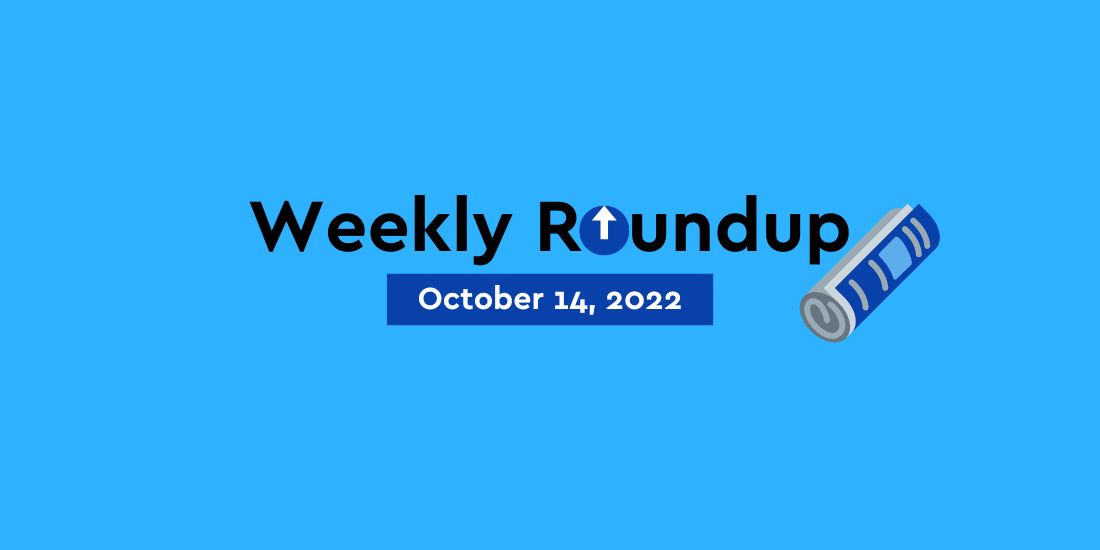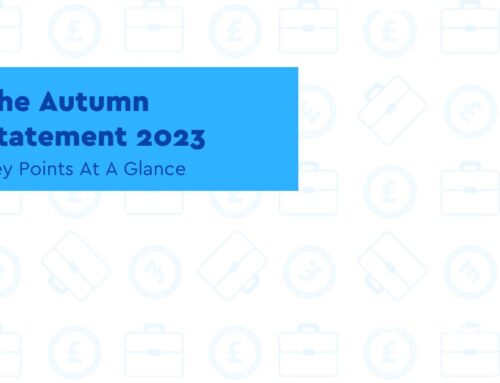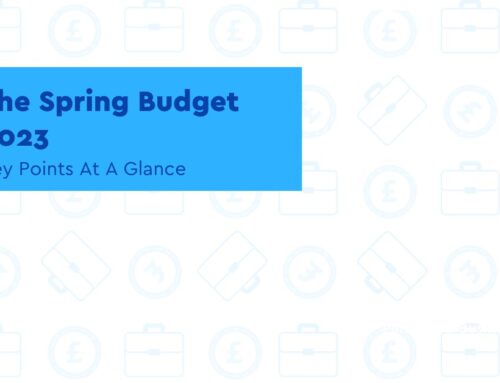News – Autumn Budget
Autumn Budget brought forward to October 31
Key Points
- An OBR costings forecast will also be published
- The medium-term fiscal plan will set out the next phase of the Government’s growth plan
The Autumn Budget will be brought forward to October 31, four weeks earlier than planned.
An Office for Budget Responsibility (OBR) costings forecast will be published in conjunction with the Chancellor’s announcements.
The medium-term fiscal plan, initially scheduled for the end of November, will set out the next phase of the Government’s growth plan.
The growth plan was first introduced in the Chancellor’s mini-budget in a bid to support the economy during the current cost of living crisis. However, pressures to bring the Autumn Budget forward, along with an OBR forecast, began after the mini-budget sparked market turmoil.
The mini-budget, which included a large bundle of tax cuts, saw the pound fall significantly, causing the Government to eventually U-turn on its plans to scrap the top rate of tax.
On the decision to bring forward both the OBR forecast and the Autumn Budget, chair of the treasury committee Mel Stride, said:
“If this lands well with markets then the MPC meeting on 3 November may result in a smaller rise in interest rates, critical to millions of mortgage holders.”
News – PAYE
HMRC updates National Insurance Booklet
HMRC has updated its National Insurance contributions (NICs) online booklet following a change in the rate of NICs with effect from November 6, 2022.
This version is to be used for payments of earnings made on or after November 6, 2022 for the remainder of the 2022 to 2023 tax year.
The previous versions of this booklet for the 2022 to 2023 tax year apply for employees’ earnings paid before November 6, 2022.
The tables are for employers who are exempt from filing or unable to file payroll information online and use manual systems.
You can access the booklet here.
News – Small Business
What does the high inflation rate mean for small businesses?
Key Points
- Businesses are affected by supply pressures as they pay more to buy materials and products
- Wages can increase as employees ask to be paid more to compensate for increasing inflation
The UK is experiencing a high rate of inflation. What is inflation and how does it affect small businesses?
Inflation measures how much prices for goods and services rise over time. When inflation is high, it means consumers can’t buy as much with their money.
What is inflation?
Inflation is a normal feature of the economy. In general, it encourages spending. If prices are expected to rise over time, consumers will buy goods now rather than wait.
But inflation can either be too low (meaning that consumers put off spending their money with businesses) or too high (meaning that businesses struggle to set prices as demand outstrips supply).
Why is inflation rising?
Inflation has been rising following the coronavirus pandemic and global lockdowns.
As economies opened up in 2021, people were able to spend their money again. Demand for certain goods and services increased, putting pressure on businesses and supply chains. This led to price rises.
What’s more, lots of people decided to change jobs following the pandemic. These shifts in the labour market have led to higher wages, increasing costs for businesses, which eventually get passed on to the consumer.
And in 2022, the war in Ukraine and subsequent sanctions on Russia have led to more pressure on fuel and food prices.
Many EU countries rely on Russia for their oil and gas. With imports banned, they have to source oil and gas from elsewhere, affecting supply.
How is inflation related to interest rates?
To combat rising inflation, the Bank of England may increase the country’s base interest rate. This makes it more costly to borrow money, encouraging consumers to save rather than spend.
Since the financial crisis, interest rates in the UK have been low, which in theory encourages spending and investment.
With inflation above nine per cent, the Bank of England has gradually raised interest rates over the last year. This can affect repayments on loans, notably mortgage repayments.
The Bank of England has a target rate of inflation – two per cent – which it hopes to reach by increasing interest rates. It says the target rate of inflation is there for stability, helping “everyone plan for the future”.
What is the current rate of inflation?
You can check the current rate of inflation at the Bank of England, which releases a monthly figure.
The rate of inflation measures how much prices have risen over the previous 12 months.
In the UK, the ONS measures inflation for everyday items by using the Consumer Prices Index (CPI). This tracks the prices of everyday items, known as the ‘basket of goods’.
The basket of goods is regularly kept updated with new items. Tinned beans and sports bras have been added in 2022, reflecting changing trends in diets and exercise.
The rising cost of gas, electricity, and fuel is heavily contributing to increasing inflation.
How does inflation affect businesses?
When prices rise, it doesn’t just affect consumers. As mentioned, wages increase as employees ask to be paid more to compensate for increasing inflation (or move jobs altogether).
Businesses are affected by supply pressures as they pay more to buy materials and products. They may have to wait longer until stock becomes available (and then face increased shipping costs and times).
Supply shortages for raw materials like timber can also impact prices. In 2021 we surveyed tradespeople to find out the impact of surging demand and labour shortages on costs.
You might have already experienced problems with your supply chain, as well as labour shortages if you’re looking for staff.
Consider these steps to tackle inflation:
Audit your prices. A fresh break even analysis could help you work out whether price increases can lead to a better profit margins. But don’t take this decision lightly, as customers may be used to current prices.
Audit your costs. Similarly, take a fresh look at your expenses to see if you can reduce them. Can you cut any inefficiencies? Lean manufacturing principles may help you find ‘waste’ in your current processes.
Come up with new plans and forecasts. As the world changes, your plans may need to change too. Take a look at your business plan to see whether there’s anything that needs updating. You can also create a new cash flow forecast and do a fresh budget.
The Bank of England thinks inflation will keep rising
While the Bank of England’s deputy governor previously said that “inflation may still prove temporary”, according to The Telegraph, the central bank now believes inflation will hit 11 per cent in 2022 before starting to fall in 2023.
Simply Business’s UK CEO, Alan Thomas, said in May 2022: “High inflation is squeezing small business owners while many are still in a crucial recovery period. The eye-watering cost of Covid-19 for SME owners, including lost work, earnings and loan repayments, now sits at a total of £109.6 billion according to one of our recent surveys.
“One in six also believe they will never recover financially from the pandemic. As a result, two in five (46%) SMEs are calling for long-lasting financial support from the government to help them get back on their feet after Covid-19.”
News – Economy
UK economy shrinks by 0.3% in August
Key Points
- This decrease in GDP was unexpected following a 0.1% growth in July
- Production was the main driver behind the fall in GDP in August, dropping by 1.8%
The UK economy shrank by 0.3% in August, according to new data from the Office for National Statistics (ONS).
This decrease in GDP was unexpected following a 0.1% growth in July, and strengthens concerns the UK will soon fall into recession.
GDP also fell by 0.3% in the three months to August compared to the three months to May 2022.
Production was the main driver behind the fall in GDP in August, dropping by 1.8% after a 1.1% decrease in July. This can be attributed to a 1.6% fall in the manufacturing industry.
Services declined by 0.1%, with health and social work activities falling by 1.3%, while the arts, entertainment and recreation industries dropped significantly by 5.0%.
However, the construction industry grew by 0.4% in August, compared to 0.1% in July, driven by a 1.9% increase in new work.
Commenting on the data, head of research at the British Chambers of Commerce (BCC) David Bharier said:
“To build business confidence, the Government must rapidly provide more detail on its fiscal policies and supply side reforms, particularly at a time when businesses face the twin crises of rising interest rates and high inflation.”
Latest Snippets
Pension withdrawals trigger tax concerns
Industry experts have raised concerns that savers could face significant tax bills, after figures from the Financial Conduct Authority (FCA) revealed that more than half of pensions (56 per cent) accessed for the first time in 2021/22 were fully withdrawn.
The data showed that of the 705,666 pensions accessed for the first time in 2021/22, more than half (395,237) were fully withdrawn.
Although more than 260,000 of these full withdrawals were for smaller pots with less than £10,000 in them, the number of pensions over £50,000 that were fully withdrawn increased 15.5% from 15,296 in 2020/21 to 17,661.
Any amount taken over an individual’s tax-free cash is added to their other taxable income, meaning many will pay 40 per cent, and in some cases 45 per cent, income tax on some or all of it.
In addition to this, those whose total income exceeds £100,000 will lose their £12,570 tax-free allowance, while those who continue to work after taking a taxable sum out of their fund could be caught out by the £4,000 money purchase annual allowance.
Two-year mortgage rates reach 14-year high
A typical two-year fixed rate mortgage has hit 6.07%, the highest figure since the 2008 financial crisis, according to financial information service Moneyfacts.
Mortgage rates have been rising throughout 2022, but there was a significant increase after the mini budget announcement on September 23.
Following the announcement, a large number of lenders removed their mortgages from the market. Between 28 September and 5 October, the number of products on the market dropped from 3,961 to 2,371.
Those most affected by the increased rates include first-time buyers and homeowners looking to remortgage.
An average of 100,000 people a month will be coming to the end of their current mortgage, and will also see a sharp rise in their monthly repayments.
Get In Touch
At Morgan Reach, we understand every business needs a little help now and again-especially when it comes to the financial side of things. Therefore, to help our clients and visitors we endeavour to cover as much of the business news as possible. If you are self-employed or run a business and need assistance and advice on how these news could make a difference to you or your business, feel free to get in touch with the experts at Morgan Reach. Our business growth experts at Morgan Reach will guide you through what support is available for you or your business as well as the latest news that may affect you.







